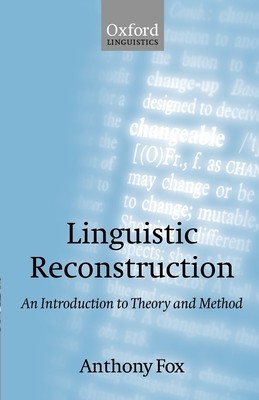
- We will send in 10–14 business days.
- Author: Anthony Fox
- Publisher: OUP Oxford
- ISBN-10: 0198700016
- ISBN-13: 9780198700012
- Format: 14 x 21.6 x 2.2 cm, minkšti viršeliai
- Language: English
- SAVE -10% with code: EXTRA
Reviews
Description
How and why are languages constantly changing? Historical linguistics seeks to find out by going beyond the history of individual languages to discover the general principles which underlie language change. But our evidence is severely limited. Most of the world's languages are still unwritten, and even in areas with long written traditions, such as Europe and the Near East, documentary evidence stretches only a little way back along the path of the historical development of languages. How, then, can we uncover our long linguistic prehistory, and what can it tell us about language change? This new book, the first in the major new series, Oxford Textbooks in Linguistics, is an accessible general guide for students with an elementary knowledge of linguistics to the methods and theoretical bases of linguistic reconstruction. Fox provides a comprehensive survey both of orthodox techniques and of newer, less well established principles such as the application of linguistic
universals and language typology, and quantitative techniques.
EXTRA 10 % discount with code: EXTRA
The promotion ends in 22d.16:40:48
The discount code is valid when purchasing from 10 €. Discounts do not stack.
- Author: Anthony Fox
- Publisher: OUP Oxford
- ISBN-10: 0198700016
- ISBN-13: 9780198700012
- Format: 14 x 21.6 x 2.2 cm, minkšti viršeliai
- Language: English English
How and why are languages constantly changing? Historical linguistics seeks to find out by going beyond the history of individual languages to discover the general principles which underlie language change. But our evidence is severely limited. Most of the world's languages are still unwritten, and even in areas with long written traditions, such as Europe and the Near East, documentary evidence stretches only a little way back along the path of the historical development of languages. How, then, can we uncover our long linguistic prehistory, and what can it tell us about language change? This new book, the first in the major new series, Oxford Textbooks in Linguistics, is an accessible general guide for students with an elementary knowledge of linguistics to the methods and theoretical bases of linguistic reconstruction. Fox provides a comprehensive survey both of orthodox techniques and of newer, less well established principles such as the application of linguistic
universals and language typology, and quantitative techniques.


Reviews